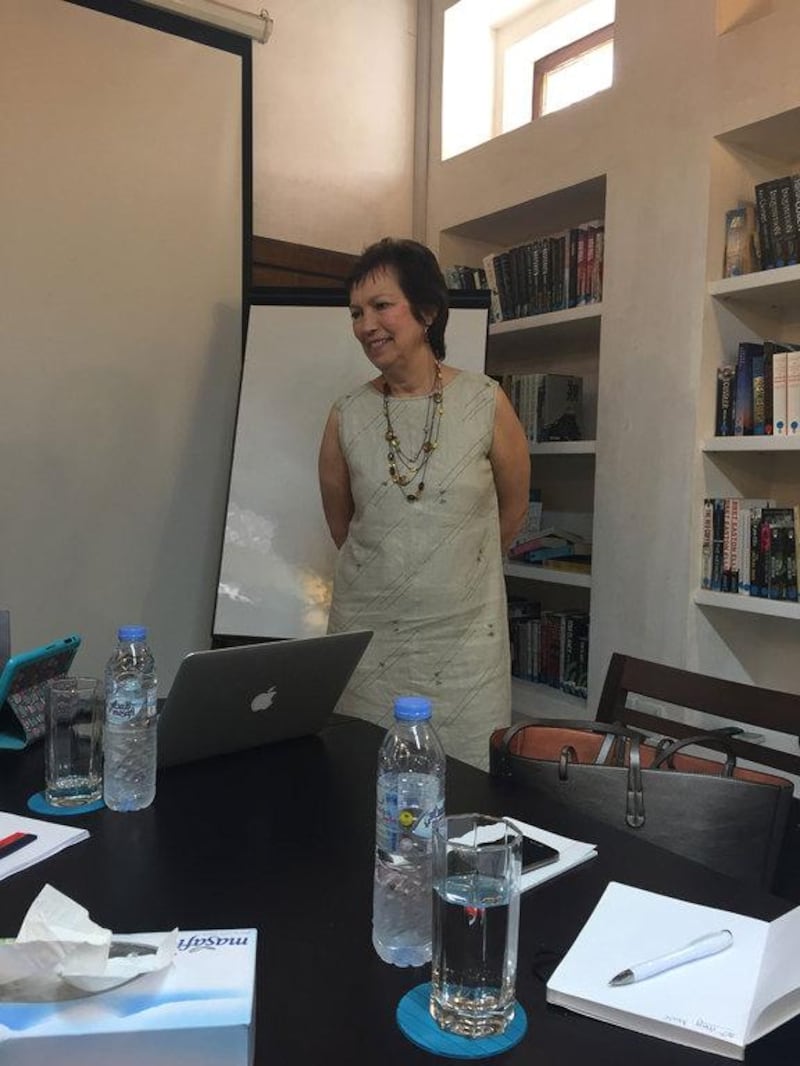Dianne Jacob, a published author, food writer and writing coach from Oakland, California, flew into Dubai this week to dispense some pithy advice to aspiring bloggers and writers. The three-hour session at the Dubai International Writers' Centre (www.diwc.ae) cost Dh500 per ticket but for anyone with journalistic aspirations, it was well worth the money.
As an editor at The National, I’m passing on some of her tips to help anyone thinking of contacting the newspaper to ask for work. Much of the advice relates to things that need to be done before that contact is made. Many pitches I receive are deeply unprofessional and read like someone who hasn’t read the newspaper, and thinks we are a writing school: “What sort of stories are you looking for?” “I would like to write for your newspaper. Please send guidelines.”
Jacob’s experiences as an editor tell a similar story. Because of the sheer number of people trying to pitch freelance ideas, and the low quality or suitability of most of them, “Between 98 and 99 per cent of pitches are unsuccessful”, she tells the room, a book lined traditional-style structure with air conditioning and a long table. “You have to find a way of getting into that one or two per cent.”
Diane’s first tip is to pick up physical copies of all the publications on the market and study them “before you even think of contacting an editor.”
Next, she says, consider how those stories converge with the type of work that you want to do, and that you can do. “What are the best stories and why should anyone want you to write them? A lot of the time, people want to pitch things that are interesting to them, but not necessarily to anyone else.”
Key, Jacob says, is getting into the mind of an editor by putting yourself in their position. “How close can you get to meeting the editor’s actual needs?
When it comes to the pitch itself, Jacob says, many people still make basic errors. “You have to know what type of story you are pitching. Is it a seasonal story, a profile, a Q&A, a how-to, a trend story, a round-up, a review or a personal essay? Many people pitch personal essays, but not many editors will be interested in these unless you are well-known already.”
A good pitch, Jacob says, outlines the type of story that is being pitched, describes it succinctly, explains why you are the right person to write this particular story, and establishes your credentials. “If you are not a published writer already, you will not be considered. But if you have a blog, you are a published writer. Send links.”
The same goes for a book proposal, Jacob says. “The most important thing is to be specific. You don’t have to know everything but you do have to give whoever you are writing to the sense that you can pull it off.”
Many aspiring authors, Jacob says, fall at the first fence because they “can’t be bothered to check that there are already 10 other books on the subject.” Most importantly, she says, “you don’t write a book proposal before you become the person that you need to be to write the book, and you are sure that you have a really good idea.”
Amen.
• For more information on Dianne Jacob visit http://diannej.com/ and for more events at the Dubai International Writers' Centre, see http://www.diwc.ae/en/home
rbehan@thenational.ae





